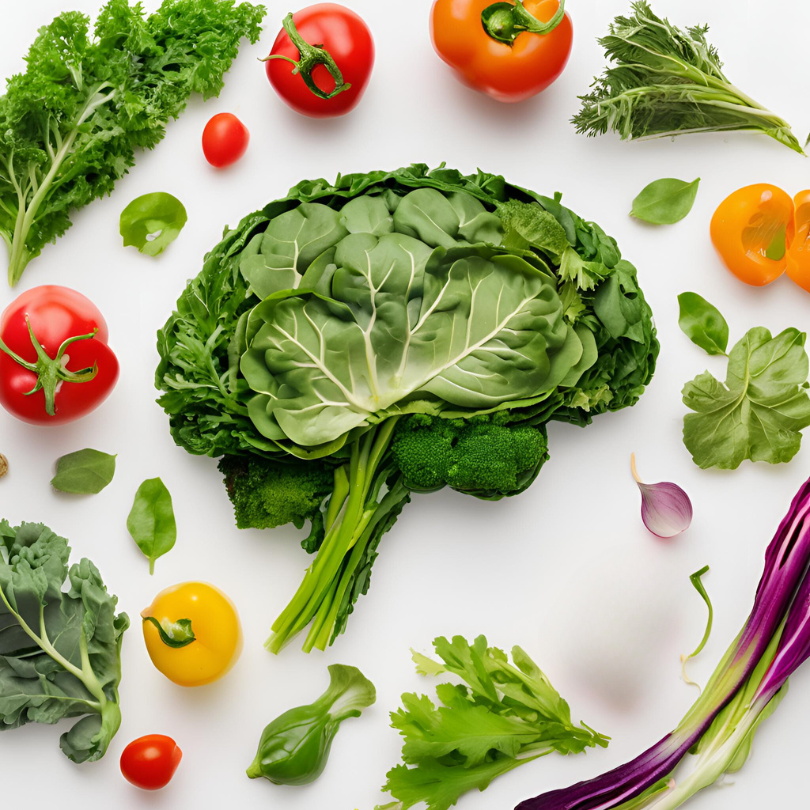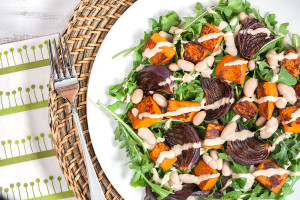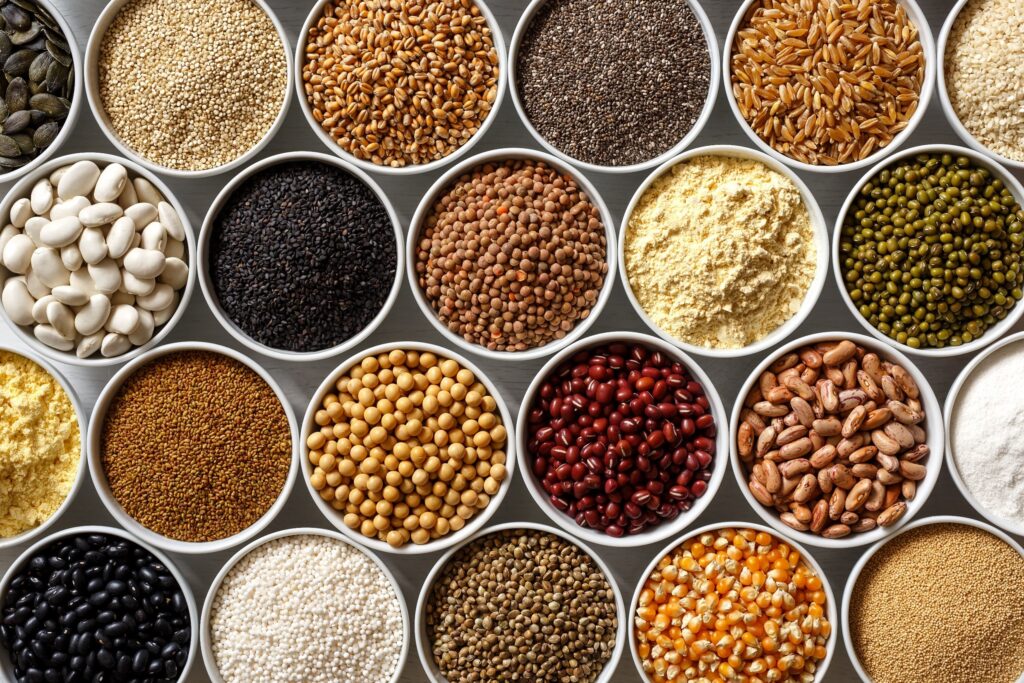
Credit: Canva AI
Have you ever had one of those days where your thinking is sluggish? You had your morning tea or coffee, you got enough sleep, but your brain just isn’t firing on all cylinders. Would you like to have fewer of those days?
Or maybe over the past few years you just don’t feel quite as sharp as you used to. Maybe it takes an extra beat to find just the right word. Perhaps that comeback that would have been *perfect* eluded you until the moment had passed. Or you just want to slice through your workday like the sharp knife you used to be.
What if I told you that two overlooked nutrients could help you do just that?
Lutein and zeaxanthin enter the chat
Lately, I’ve been working on a big nutrition writing project. While I love writing, it also makes me painfully aware of my mental acuity (or lack thereof) on any given day! Nothing makes me feel off my game like not being able to put an idea into words.
So, imagine my delight when some background research I was doing for the project led me to two little-known nutrients with a big impact on brain health: lutein and zeaxanthin. They’re the nutrients you didn’t know you needed for quick, clear thinking.
Pronounced Loo-teen and zee-uh-ZAN-thin, these powerhouse nutrients are practically twins in terms of their structure. They’re also close cousins of beta-carotene and vitamin A.
Most people haven’t heard of lutein or zeaxanthin. If you have, you might associate them with eye health. That’s because they’re found in the eye, where they help safeguard vision and ward off severe macular degeneration, an age-related eye disease.
A power couple for brain health
While healthy vision is great, what really intrigued me were the benefits of lutein and zeaxanthin for thinking and performance. While the science is new, studies suggest that they can help your brain perform at its peak.
For example, in one “gold-standard” trial, healthy young adults were asked to take either a supplement with lutein and zeaxanthin or a placebo (lookalike “sugar pill”) for one year. After 1 year, visual memory, reasoning ability, and complex attention all improved in the group that got lutein and zeaxanthin.
However, you can see benefits at any age. An analysis of 19 studies found that these nutrients can improve thinking and sharpness at all ages. The authors of the analysis looked at both snapshots in time (cross-sectional studies) and clinical trials. In the snapshot studies, people who had more lutein and/or zeaxanthin in their brain—as measured by the amount visible in the backs of their eyes—performed better on multiple tests of brain function. The body can’t make lutein or zeaxanthin, so they must come from food or supplements.
In the clinical trials, participants got either food or supplements containing our star nutrients, or a placebo. What happened? Nearly across the board, eating more lutein and zeaxanthin led to higher levels of those nutrients in the brain and improved mental performance. Areas that improved included visual memory (where did I last see those keys?), word memory (what did that person say their name was?), and processing speed.
The only exception was a single year-long trial in older adults. There, performance held steady in those getting extra lutein and zeaxanthin, while it got worse in people getting the placebo.
The moral of the story: When people get enough lutein and zeaxanthin, their brains work better.
How do lutein and lutein and zeaxanthin help?
- They’re antioxidants. That means they help protect delicate brain tissue from damage caused by toxic by-products of normal cell function.
- They’re anti-inflammatory, calming the immune system, so it doesn’t overreact to normal threats. (No need to burn the place down when all you need is a quick clean-up on aisle 2!) It’s hard to think clearly when there’s smoke everywhere and a fire alarm blaring on a biochemical level.
- They can enter the brain. The brain is really choosy about who gets in the penthouse club, as it were. The brain’s bouncers are serious about keeping out riffraff. (Good!) But that means they sometimes exclude good guys. (Bad!) Luckily, the brain’s bouncers love lutein and zeaxanthin. They’re a Big Deal and get to walk right around the ropes and metal detectors. As a result, these nutrients accumulate in the eyes and brain, where they work their magic.
Top 10 Foods High in Lutein + Zeaxanthin
So, how can you give your brain a healthy dose of lutein and zeaxanthin? Of course, you can get supplements, and that may be important for folks with macular degeneration. But if you’re healthy (and want to stay that way), I suggest getting them from food. These nutrients are only found in plant foods, and especially colorful veggies that have loads of other health benefits, too.
Hands down, the high scorers are dark leafy greens of all stripes. Think spinach, chard, collard greens, turnip greens, and kale. (I only picked a couple to show in the table below, or the whole thing would be dark leafy greens!) But you’ll find lutein and zeaxanthin in other colorful plant foods, too. Read on to for 10 dietitian picks high in lutein and zeaxanthin, followed by some yummy ways to enjoy them.
| Food | Lutein + Zeaxanthin (micrograms per gram of food) |
|---|---|
| Spinach | 157 |
| Collard greens | 109 |
| Pistachios | 29 |
| Green peas | 26 |
| Summer squash (e.g. zucchini, yellow squash) | 22 |
| Lettuce (romaine) | 23 |
| Popcorn (low fat) | 18 |
| Edamame (baby soybeans) | 16 |
| Corn flakes breakfast cereal | 15 |
| Winter squash (e.g. butternut, acorn, pumpkin) | 14 |
Source: USDA FoodData Central
Lutein and zeaxanthin recipes for better brainpower
If you’re ready to eat some brain food, try these three tasty recipes! Then go do some calculus. Or a crossword. Or maybe just remember where you put your keys! 😉
Scandalously good grits n’ greens casserole
Roasted butternut squash salad with creamy cashew dressing
Delicata squash rings with cinnamon apples





 I'm Lee, an RD thriving on a healthy plant based diet.
I'm Lee, an RD thriving on a healthy plant based diet.
Leave a Reply